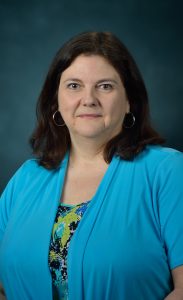
The University of Mississippi has launched the Institute for Data Science to help students from a range of disciplines learn to deal with the issues and possibilities of big data, enormous or complex data sets collected from a variety of sources and produced at a high rate. Adobe Stock photo
OXFORD, Miss. – With the explosion of big data fueling new jobs and technologies, the University of Mississippi has created a new Institute for Data Science to help educate the next generation of data scientists.
The Institute for Data Science, or IDS, will attract and instruct students and others who want to develop expertise to ethically apply data science to advance knowledge, enable enterprise and improve society.
Dawn Wilkins, UM chair and professor of computer and information science, is the institute’s interim director.
“The purpose of the IDS is to serve as a central site on campus to bring together expertise in working with big data to share knowledge and experiences through workshops and seminars, facilitate identifying fruitful collaborations, provide technical support to internal research projects and external organizations, and to educate the public about the opportunities and challenges of big data,” she said.
While the institute will not offer a new academic degree program, it will support and supplement educational offerings in existing UM programs such as engineering, pharmacy, business, accountancy and applied sciences. Students from these and other programs will have opportunities to develop data science knowledge and skills to tackle big data by participating in new or enhanced interdisciplinary electives, workshops and seminars, internships and faculty-mentored research or experiential learning projects through IDS.
“The UM mission includes providing opportunities for learning and discovery,” Wilkins said. “With so much data collected today, often discoveries are made from that data.
“Making predictions, linking together disparate data and organizing the data to provide actionable information is a key trait of data science, which meshes well with the UM mission.”
Big data is just that: enormous or complex data sets collected from a variety of sources and produced at a high rate. Due to the size and complexity, big data can’t be analyzed or information extracted from through current data-processing application software.
What is needed are computers and sophisticated algorithms to process the data, extract useful information and visualize it or represent it in a way that is helpful to gain knowledge.
As big data has become widespread – sources of it include social network data, machine-generated data, publicly available data sets and interrelated computing devices – so has its use in a variety of industries such as health care, financial services, government, transportation, retail, entertainment, national security, energy, manufacturing and education.
This growth has produced demand for data-savvy professionals in a variety of disciplines and industries.
“Collecting data is easy; making sense of it is hard,” Wilkins said. “For reasonable-sized data, most people can use a spreadsheet to extract useful information. That works great until the data is too big for the spreadsheet or is in a wide range of formats or is collected from a real-time system such as a camera or sensor.
“Data scientists can create specialized software to extract, transform, integrate, summarize and visualize big data. Handling the immense technical challenges while upholding standards of privacy and integrity requires proper training and experience.”
Beyond educating students to ethically harness big data for industries, the institute also will increase entrepreneurship and external connections, foster an intellectual and engaged environment, increase research and creative achievement, and support faculty excellence.
To cement the institute’s impact, the university is engaged with industry leaders to ensure the institute’s training and academic programs are producing the high-knowledge workforce they need and exploring collaborative projects with these industries.
The institute also will conduct public outreach to promote understanding of the power of data to ethically advance the public good.
“We are so excited about the creation and launch of the IDS,” said Josh Gladden, UM vice chancellor for research and sponsored programs. “Data science develops the tools and techniques to convert data into decisions and, with the explosion of data in so many areas, it is a perfect example of true interdisciplinary work.
“In addition to partnering with both a wide range of faculty on campus as well as federal and industry partners to solve a spectrum of problems, IDS will have a unique component of ever-increasing importance: the ethics of data.”
Some 10 to 20 faculty members from key disciplines across multiple Ole Miss schools and departments will contribute expertise to IDS, along with Wilkins and Ting Xiao, a data scientist with the institute.
Formerly a data analyst with Northwestern University’s Department of Neurological Surgery, Xiao’s research interests include statistical analysis and predictive modeling, application of machine learning techniques in data intensive research areas and development of online statistical analysis tools for researchers.
“IDS is a startup institute with a lot of potential,” Xiao said. “I’m excited to contribute not only my expertise in data science, but also my ideas in getting IDS into working and further development.
“Ranging from the stock market to biomedical science to social science, we have been witnessing data growing exponentially thanks to the rapid development of new technologies. While collecting data is no longer a major barrier, extracting useful information from a vast amount of data has become the main challenge. Therefore, industries and academia have seen a fast increase in the demand for data scientists, data analysts and data-savvy professionals.”
Once fully functional, IDS will further the university’s mission by fostering interdisciplinary research and education in multidisciplinary grand-challenge areas; strengthening and expanding the university network by enhancing relationships with world-class researchers and establishing links and creative partnerships with industry leaders, community and government stakeholders; and supporting graduate and undergraduate degree offerings involving data science and analytics skills.
The institute also could lead to additional revenue streams for the university through technology licenses, certificate programs and other continuing education programs.
To learn more about partnering with the Institute for Data Science, contact Hughes Miller, director of industry giving and engagement, at 662-915-2885 or hughes@olemiss.edu.
